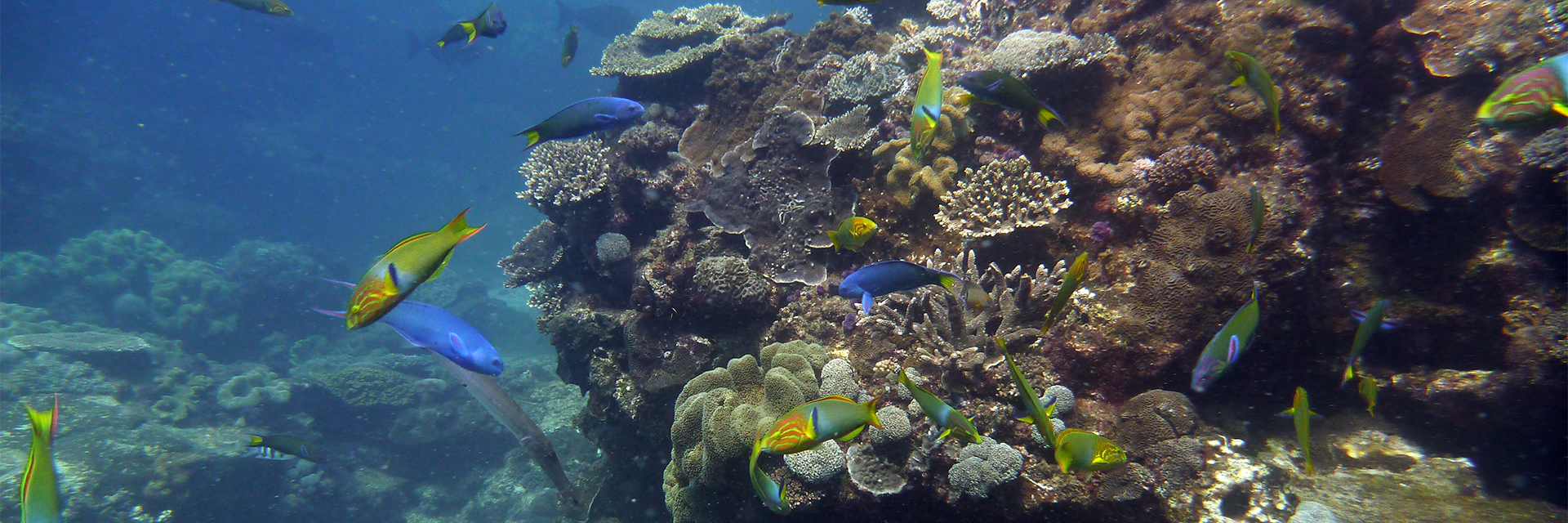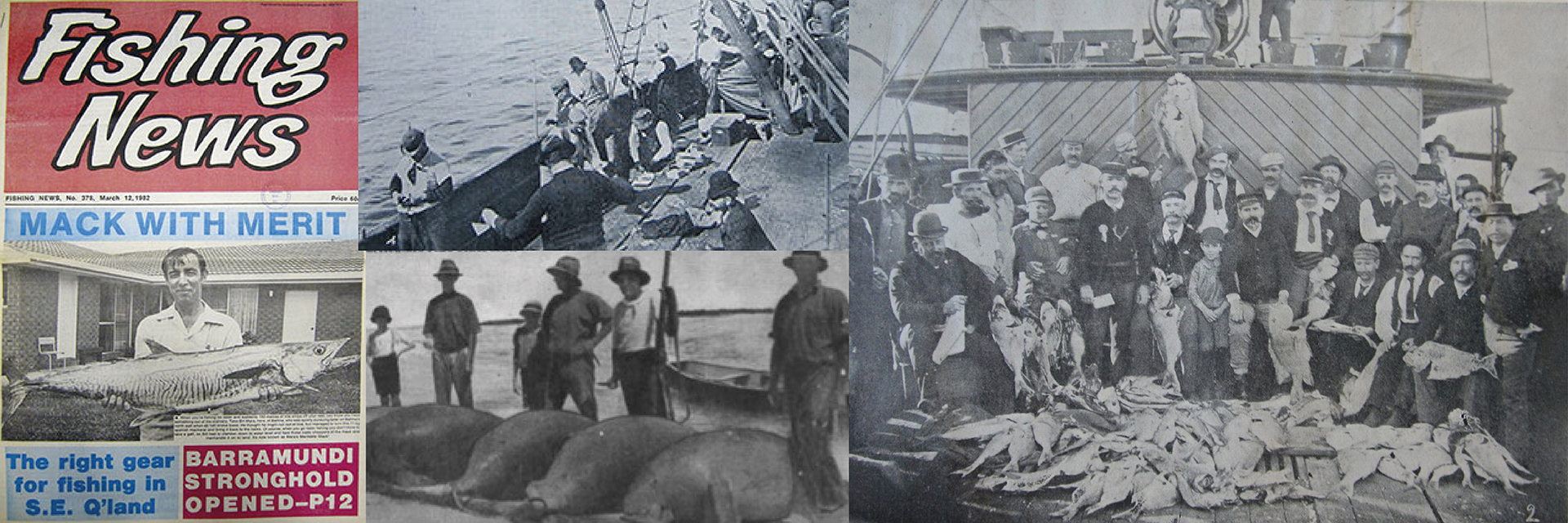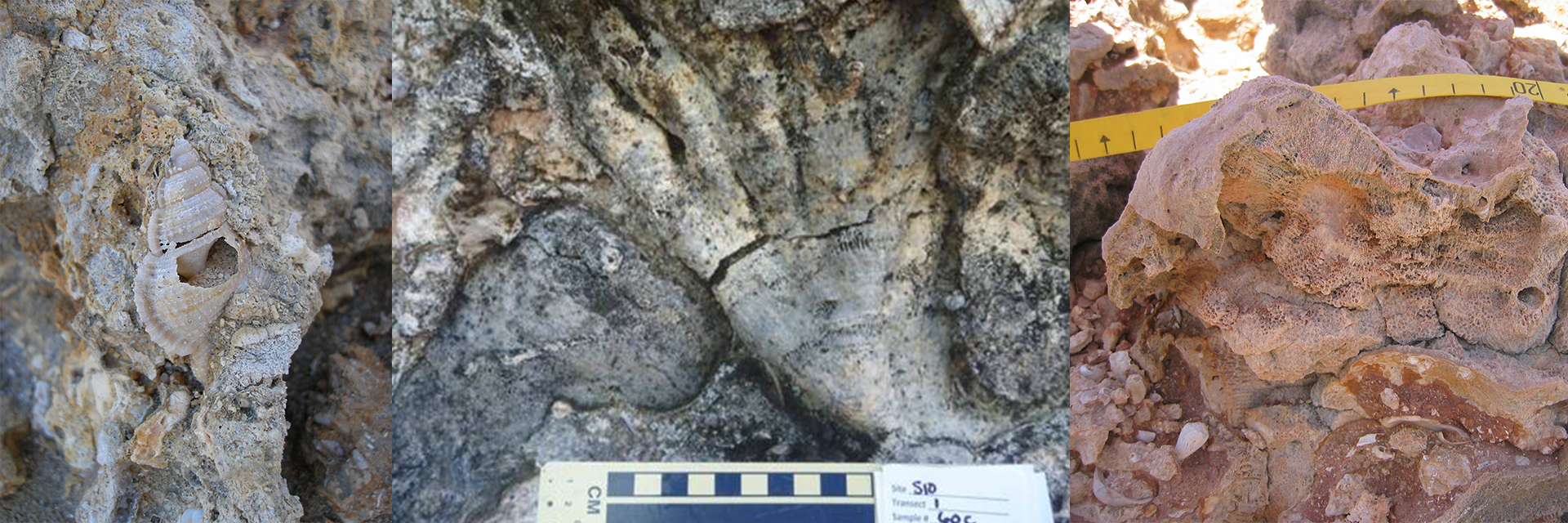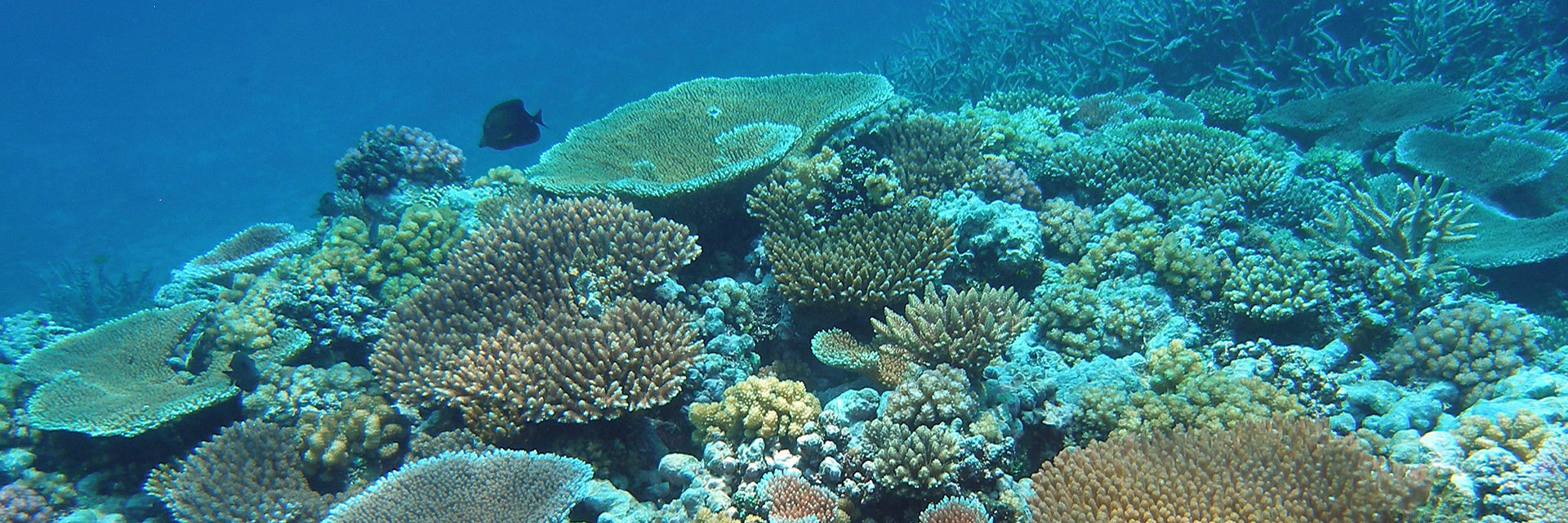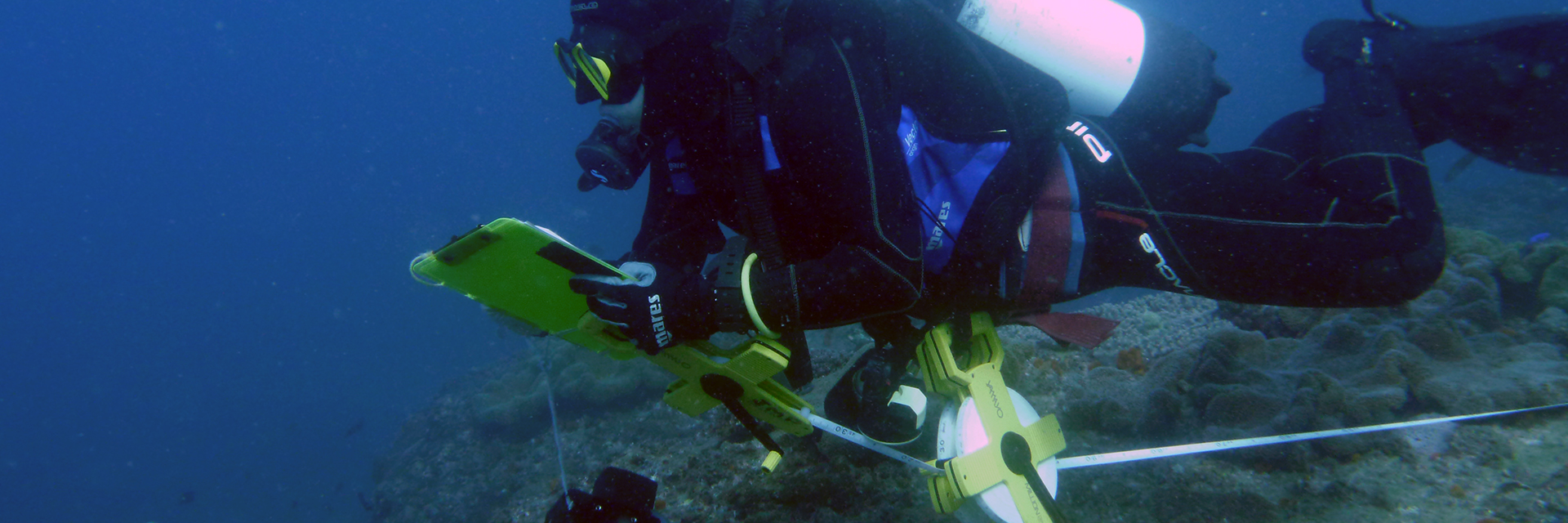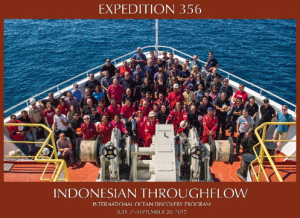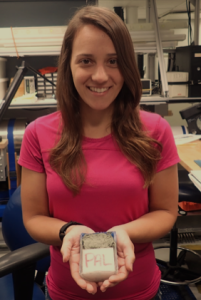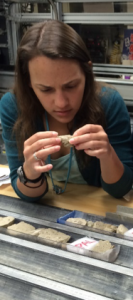September 2015
Recently I had the opportunity to partake in an 8-week research expedition with the International Ocean Discovery Program (IODP) onboard the JOIDES Resolution. IODP is an international marine research organization that drills into and collects sediments from the seafloor to investigate a broad range of scientific questions relating paleoclimates, oceanography, hydrodynamics, tectonics, sedimentology, and paleobiology. The primary objectives of our expedition (Expedition 356: Indonesian Throughflow) were to examine the 5-million year history of the Indonesian Throughflow, Australian monsoon, and tectonic subsidence on the northwest shelf of Australia.
Photo credit: Bill Crawford, Exp 356 Photo Specialist
Onboard as a research scientist, my role was Sedimentologist / Core Describer with expertise in macrofossil identification. Generally, the JOIDES Resolution drills in deep water (100’s to 1,000’s of meters deep), but for this expedition we were drilling in relatively shallow waters (<100 to only a few 100’s of meters) on the Australian shelf. By drilling in relatively shallow water, this increased our chances of encountering more macroscopic organisms that are commonly found on (or transported to) continental shelves, such as molluscs, corals, and echinoderms. In addition to identifying macrofossils found in the cores we recovered, I worked with my team of sedimentologists to describe the lithology of the sediment cored and define lithologic units based on changes in lithology down core and over geologic time.
Data collected during Expedition 356 is currently in moratorium, meaning that all data and samples are reserved first for the scientists who participated in the expedition. Data from the expedition will become available to the public in about one year, and results from scientists’ analyses and experiments will be published as peer-reviewed manuscripts over the next few years. Personally, my research will focus on taxonomic and ecologic questions relating to fossil corals recovered at various sites and geologic time intervals during the expedition.
If you would like to learn more about the International Ocean Discovery Program: http://www.iodp.org/
Or about my experience/research: http://marinepalaeoecology.org/chelsea-korpanty/
Chelsea Korpanty
